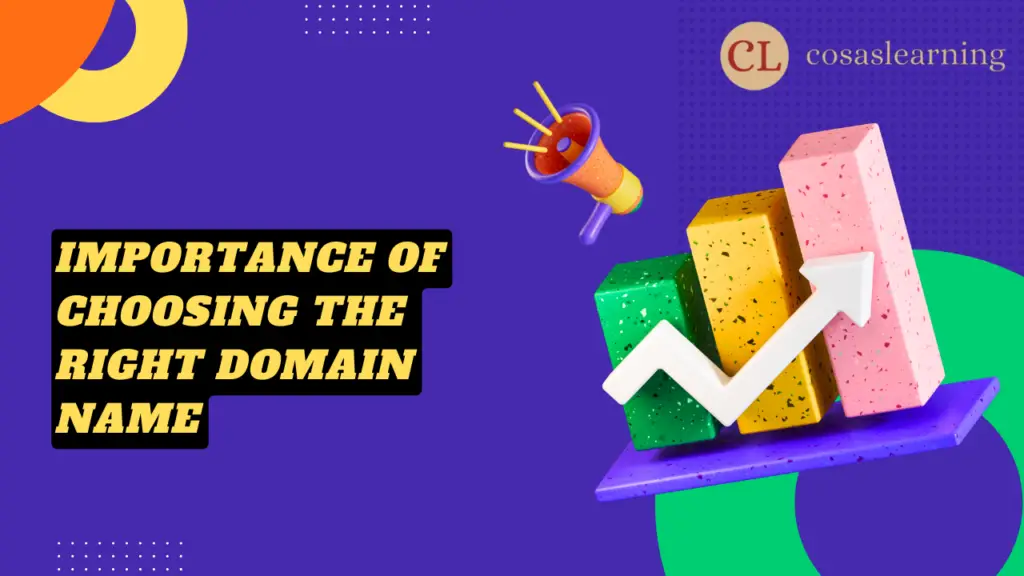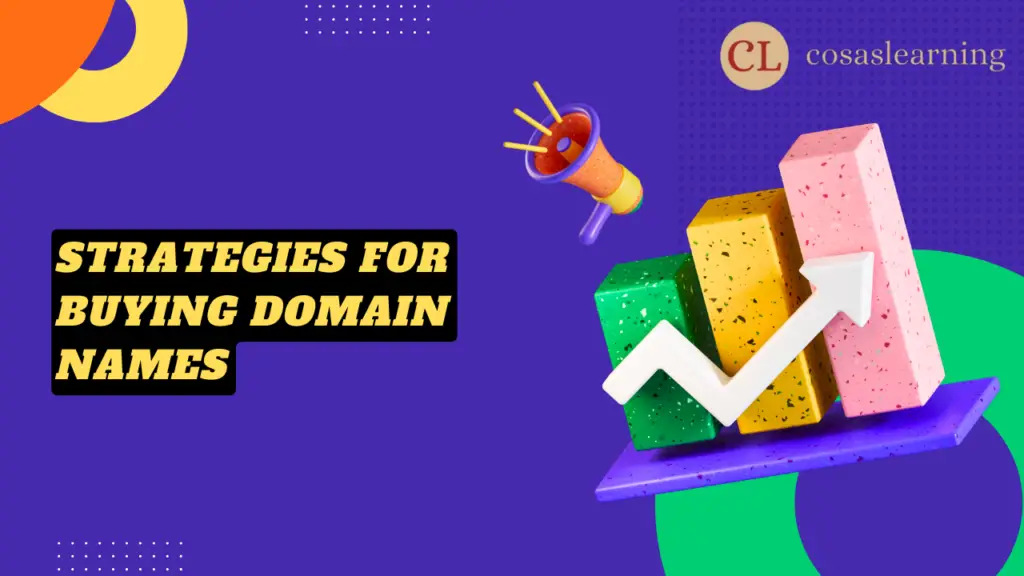Domain marketing is an intriguing field that revolves around the buying and selling of domain names. It is a specialized practice that requires a deep understanding of the market, trends, and the factors that influence the value of domain names. In this article, we’ll discuss domain marketing, including selecting the perfect domain name, effective buying and selling strategies, the importance of SEO, creating a domain portfolio, and legal factors to consider.
Understanding Domain Marketing

Domain marketing is the practice of obtaining, handling, and selling domain names as an investment. It involves identifying valuable domain names and leveraging them for potential profits. Domain names act as unique digital addresses for websites, and their value can vary greatly based on factors such as relevance, demand, and scarcity.
Importance of Choosing the Right Domain Name

The first step in domain marketing is choosing the right domain name. A well-selected domain name can significantly impact a website’s success. It should be memorable, relevant to the website’s purpose, and easy to spell and pronounce. A strong domain name boosts brand awareness, aids SEO, and improves user satisfaction.
Strategies for Buying Domain Names

Research and Analysis
Research and analysis are crucial when it comes to buying domain names. It involves identifying popular keywords, market trends, and potential niches. Thorough research helps in understanding the target audience and their preferences, enabling the acquisition of domain names with high market potential.
Expired Domain Auctions
Expired domain auctions are platforms where domain names that were not renewed by their previous owners are sold to the highest bidder. These auctions provide an opportunity to acquire valuable domain names with established backlink profiles and existing traffic. It is essential to conduct due diligence and assess the domain’s history and reputation before participating in these auctions.
Domain Brokers and Marketplaces
Domain brokers and marketplaces serve as middlemen connecting domain name buyers and sellers. They offer a wide selection of domain names and provide assistance in the acquisition process. These platforms make buying easier and offer access to valuable domain names not found elsewhere.
Negotiating and Closing Deals
Negotiating and closing deals is a crucial skill in domain marketing. It involves understanding the market value of domain names, assessing potential buyers’ needs, and finding mutually beneficial agreements. Successful negotiations result in profitable transactions and create opportunities for future collaborations.
Factors Influencing the Value of Domain Names

Several factors influence the value of domain names. Understanding these factors is essential for effective domain marketing. Let’s explore some of the key factors:
Domain Extension
The domain extension, like .com, .net, or .org, greatly impacts a domain’s worth. .com domains are generally considered more valuable and widely recognized, especially for commercial purposes. However, specific niche markets may have preferences for other domain extensions.
Keywords and Relevance
Keywords and relevance are essential considerations in domain marketing. Domain names that contain relevant keywords related to a specific industry or niche have a higher perceived value. Such domains are more likely to attract targeted organic traffic and generate leads.
Brandability and Memorability
Brandability and memorability are crucial for a domain’s success. A domain name that is easy to remember, pronounce, and aligns with the brand’s identity has a higher chance of attracting visitors and building a strong online presence.
Length and Pronunciation
Shorter domain names are generally more desirable as they are easier to type, remember, and share. Additionally, domains with clear and straightforward pronunciation are favored over complex or ambiguous ones.
The Role of SEO in Domain Marketing

SEO (Search Engine Optimization) plays a significant role in domain marketing. An optimized domain name can boost website visibility, attract organic traffic, and improve user experience. Here are some ways in which SEO influences domain marketing:
SEO-friendly Domain Names
An SEO-friendly domain name incorporates relevant keywords and is structured in a way that aligns with search engine algorithms. Including keywords in the domain name can provide a ranking advantage and increase the website’s chances of appearing in search results.
Backlink Profiles and Domain Authority
Domain authority, which is influenced by the quality and quantity of backlinks, impacts a website’s search engine rankings. Acquiring domain names with established backlink profiles can give domain marketers a head start in building websites with high domain authority.
Targeting Local or Global Markets
Domain marketing allows for targeting specific markets, whether local or global. Choosing domain names that reflect the target market’s language, culture, and preferences can help in attracting the right audience and increasing conversion rates.
Building a Domain Portfolio

Building a domain portfolio involves acquiring and managing multiple domain names to create a diversified asset portfolio. Here are some considerations for building a successful domain portfolio:
Diversification
Diversification is crucial in domain marketing to spread the risks and capture opportunities in different market segments. By investing in a variety of domain names across various industries, niches, and geographical locations, domain marketers can mitigate the impact of market fluctuations and increase the chances of profitable sales.
Identifying Trends and Emerging Markets
Staying updated with industry trends and emerging markets is essential in domain marketing. Identifying upcoming trends and acquiring domain names relevant to those trends can lead to significant profits when the demand for such domains increases.
Valuation and Appraisal
Regularly assessing the value of domain names in a portfolio is important. Valuation and appraisal techniques help domain marketers determine the worth of their domain names based on factors such as market demand, industry trends, historical sales data, and the overall quality of the domains. Domain appraisals by experts offer valuable insights for informed decisions on buying, selling, or holding domain names.
Selling Domain Names

Selling domain names is a core aspect of domain marketing. Here are some strategies for selling domain names effectively:
Listing on Marketplaces and Auctions
Listing domain names on popular marketplaces and auction platforms increases their visibility and attracts potential buyers. These platforms provide a wide audience of interested individuals and organizations looking to acquire valuable domain names. It is important to create compelling listings that highlight the unique selling points of the domains and engage potential buyers.
Advertising and Promotion
Advertising and promoting domain names can significantly increase their exposure and attract potential buyers. Utilizing online advertising channels, social media platforms, and targeted marketing campaigns can help reach a broader audience and generate interest in the domain names being sold.
Negotiation and Transfer Process
Negotiation skills play a crucial role in selling domain names. Effective communication, understanding the buyer’s needs and budget, and finding a mutually beneficial agreement are key to successful negotiations. After the deal is done, the domain transfer should be smooth, secure, and ensure a seamless transition of ownership.
Legal Considerations in Domain Marketing

Domain marketing is subject to various legal considerations to protect the rights of trademark owners and prevent abusive practices. Here are a few important legal aspects domain marketers should be aware of:
Trademarks and Intellectual Property
Registering and using domain names that infringe upon existing trademarks or intellectual property rights can lead to legal disputes and potential financial liabilities. It is crucial to conduct thorough research and avoid acquiring or using domain names that violate trademark laws.
Domain Disputes and Cybersquatting
Domain disputes may arise when multiple parties claim ownership or have conflicting rights over a domain name. Cybersquatting, which involves registering domain names similar to well-known brands with the intent to profit from their reputation, is considered an abusive practice. In some situations, resolving disputes may require legal actions like arbitration or court proceedings.
Conclusion

Domain marketing is a skillful practice that demands strategic thinking, market awareness, and negotiation abilities. Success lies in selecting the right domain names, grasping their value, and implementing effective marketing strategies. By staying updated with industry trends, engaging in thorough research, and adhering to legal considerations, domain marketers can unlock the potential for profitable buying and selling of domain names.
FAQs
Click Here : To Show Your Support! 😍






